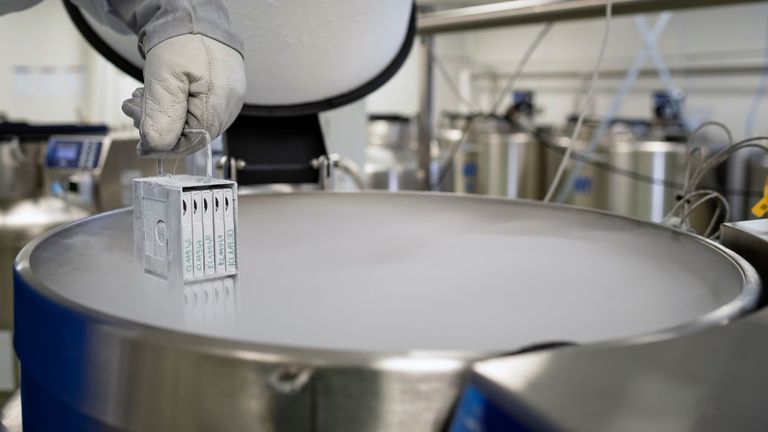Researchers have discovered a potential link between a common gut bacteria and bowel cancer by analysing DNA.
The Dutch study found a toxin released by a strain of the E.coli bacteria leaves unique patterns, or “fingerprints”, as it damages the DNA in the cells lining the gut.
These so-called fingerprints were observed mainly in bowel cancer tumours, showing “a direct link” between the microbial toxin and the genetic changes that contribute to cancer development.
The researchers suggested that detecting this specific DNA damage could, in future, allow doctors to identify people at higher risk of the disease.
Professor Hans Clevers from the Hubrecht Institute in the Netherlands said factors such as tobacco or UV light were already known to cause specific patterns of DNA damage.
“And these fingerprints can tell us a lot about past exposures that may have caused cancer to start,” the lead researcher said.
“But this is the first time we’ve seen such a distinctive pattern of DNA damage in bowel cancer, which has been caused by a bacterium that lives in our gut.”
The scientists investigated the role of gut microbiome – essentially the ecosystem of digestive bacteria in the development of bowel cancer.
They focused on a strain of E. coli producing the toxin known as colibactin.
Miniature replicas of the gut grown in the lab were exposed to this toxin and the researchers found evidence of DNA damage following unique patterns.
The team analysed the DNA sequences of more than 5,500 tumour samples and found these fingerprints to be present more often in bowel cancers than other types of tumour.
The researchers then focused on bowel tumours specifically, looking at more than 2,000 samples collected as part of the 100,000 Genomes Project run by Genomics England.
They found the colibactin fingerprints were present in 4% to 5% of the samples, which the researchers said suggests that colibactin-producing E. coli may contribute to 1 in 20 bowel cancer cases in the UK.
They are now looking at other bacteria and their toxins associated with bowel cancer as part of the next steps in their research.
There are around 42,000 new bowel cancer cases every year in the UK, which remains the second most common cause of cancer death, according to Cancer Research UK.
The research, funded by a £20m Cancer Research UK Grand Challenge award, was published in the journal Nature.













